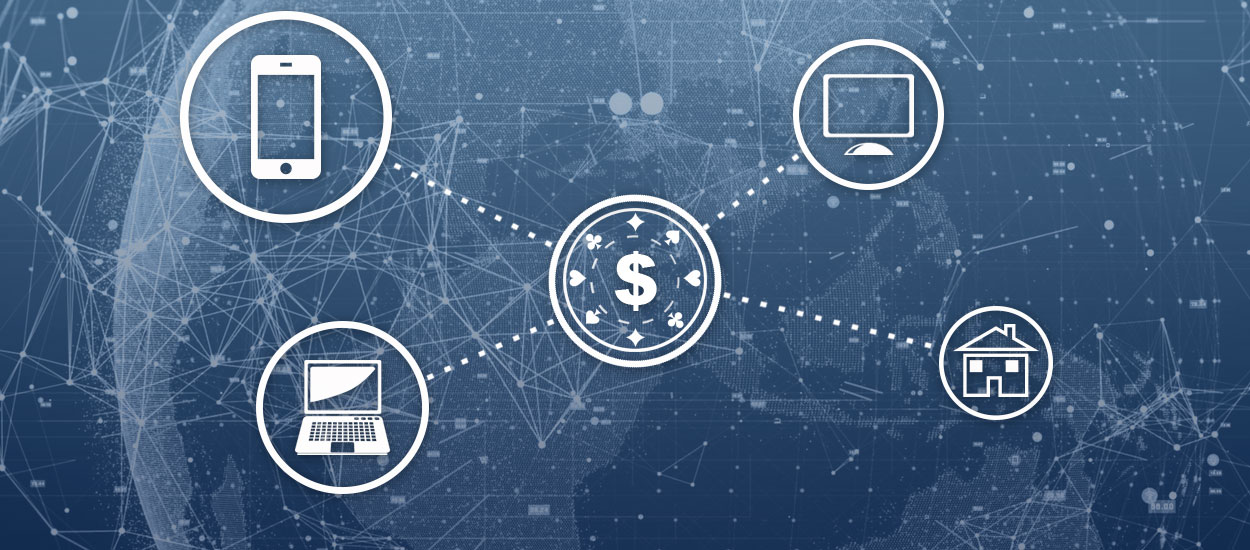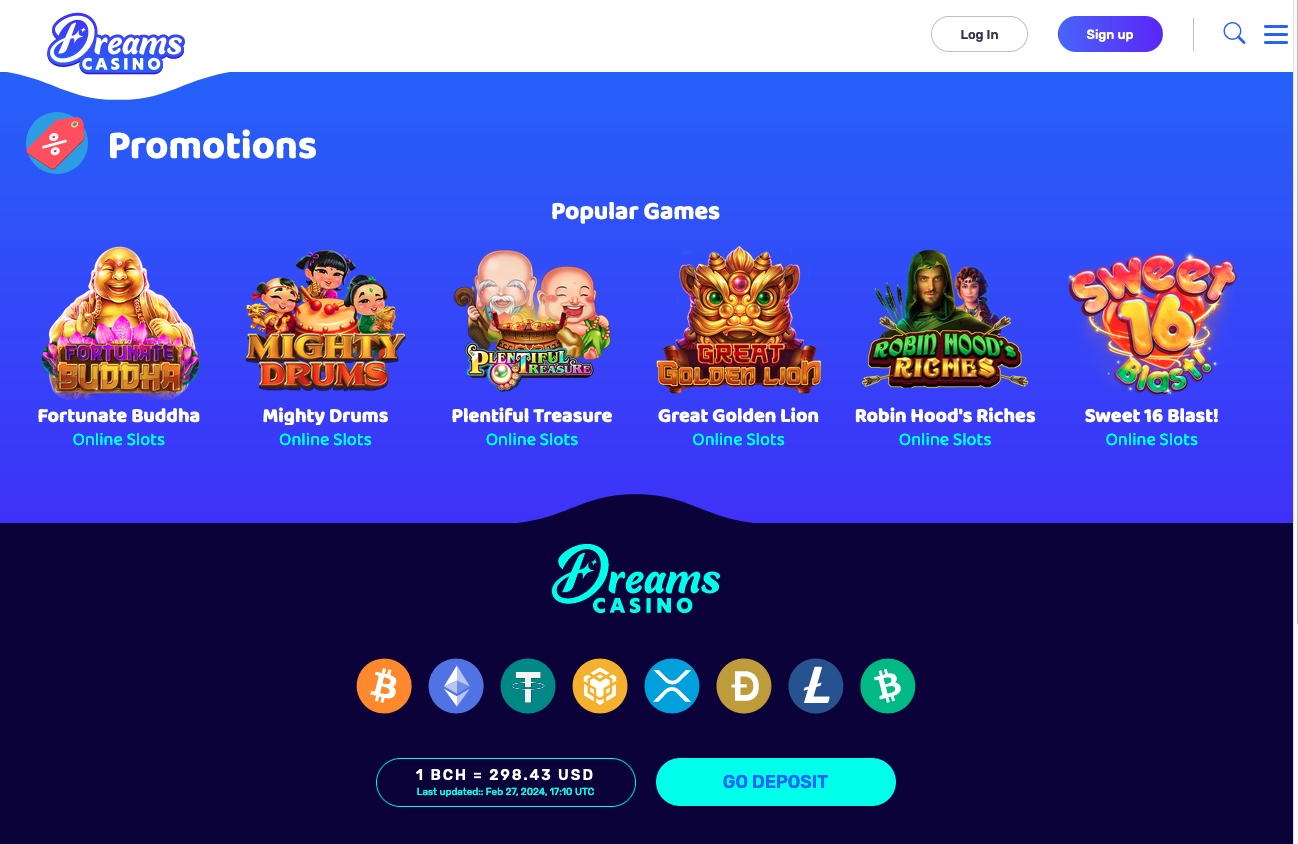For the past few years one of the biggest discussions related to gambling has been the idea of an omnichannel. While the concept of an omnichannel may seem complicated at first, it is actually quite simple when one examines it more closely.
An omnichannel simply means that all gambling is put into one pot under a bettor’s profile and the bettor controls all aspects of their gambling by entering a username, password and possibly an extra security feature on any device. So, whether that is done on a smartphone, at a physical land-based machine or on a home computer, the whole process is seamless. One of the biggest advances and most exciting features of an omnichannel is with casino games that are available both online and at a physical casino.
Perhaps the easiest way to understand the benefits of an omnichannel in that regard is to consider how some cable providers in North America today provide anywhere, anytime, streaming for their favorite programs. A person can start watching a program at home, pause it, and then pick it back up at home where they left off later that day or at a different location by simply logging back onto the cable app on their smartphone or tablet and entering their information. And it will also be paused and available any day afterwards if it’s not feasible to continue watching the program that day. That ability to seamlessly watch a show on multiple devices at any time or on any other day was deemed a big breakthrough. For gambling, developers of casino omnichannels intend to do the exact same thing. A bettor will have an account at the casino that they can access anywhere, anytime. Whether they are playing on a computer, smartphone, or tablet, they will have the ability to pause any game and pick up where they left off at a late time. This would be particularly beneficial if they deem the game to "be hot" and they don’t want to break the momentum, or if they are in the middle of a bonus, but simply don’t have the time to complete the game or of course if their device should lose battery power. But casinos also want the ability to use land-based machines in that omnichannel too. So, a player would have the ability to transfer the play from the online slot machine to a land-based machine at a casino and vice-versa. So, if one is playing Cleopatra on a slot machine at the casino and they need to leave, they can simply pause the game, enter a code, and then pick up the game exactly where they left off on a computer or mobile app by simply logging into their account. This would also apply to any card games. So, a casino may have a land-based facility with machines and the exact same games offered on a computer, tablet or mobile app and they would all integrate seamlessly.
For gambling, developers of casino omnichannels intend to do the exact same thing. A bettor will have an account at the casino that they can access anywhere, anytime. Whether they are playing on a computer, smartphone, or tablet, they will have the ability to pause any game and pick up where they left off at a late time. This would be particularly beneficial if they deem the game to "be hot" and they don’t want to break the momentum, or if they are in the middle of a bonus, but simply don’t have the time to complete the game or of course if their device should lose battery power. But casinos also want the ability to use land-based machines in that omnichannel too. So, a player would have the ability to transfer the play from the online slot machine to a land-based machine at a casino and vice-versa. So, if one is playing Cleopatra on a slot machine at the casino and they need to leave, they can simply pause the game, enter a code, and then pick up the game exactly where they left off on a computer or mobile app by simply logging into their account. This would also apply to any card games. So, a casino may have a land-based facility with machines and the exact same games offered on a computer, tablet or mobile app and they would all integrate seamlessly.
Currently many casinos with land-based facilities also have a mobile casino, but they do not work concurrently. The casino treats their land-based operation separately from the mobile or desktop casino and while a player may have an account at each, they do not interact with each other in any way. Moreover, most casinos have not integrated a player's card that is swiped at the casino with their online casino. So, any play online will not result in points being accumulated at the land-based casino on their player's card and vice versa. With a proper omnichannel, points will automatically accumulate regardless of where the game is being played, and players will be able to deposit or withdraw from any platform they are using by simply logging into their account and requesting money be added or withdrawn to their bank.
SG Digital, along with Playtech Gaming in England, had set up an optimal omnichannel for use in the UK, but the pandemic derailed the implementation of the program at some land-based facilities since they were closed. Ironically, the pandemic also helped demonstrate why an omnichannel is so important. Aside from the fact that land-based casinos in many states were stuck because they did not have a legal mobile option for their regulars to play at, there was also concerns that arose when land-based casinos reopened. With so many casinos not willing to handle cash and so many players not wanting to handle chips, casinos were forced to consider how to handle that situation and plans were put in play to allow players to deposit and withdraw from their accounts by simply scanning their smart phones either at designated slot machines at the facility with that capability or at tables where dealers had scanners and virtual chips were loaded into their accounts to play with. And many casinos even considered allowing players to fund their accounts using bitcoin and other cryptocurrencies, since any exchange to the fiat currency at play would be done automatically.
Hot Topic
One of the sessions at the recent SBC Digital Summit North America conference was titled "From gaming floor to mobile slots – harnessing the omnichannel opportunity." Several panelists discussed why an omnichannel was the future of the industry. Roger Mims, a manager at Rivers Casino in Philadelphia (formerly Sugarhouse) mentioned that the main reason an omnichannel was the wave of the future is that those who go to a land-based casino are different than people who play at home and casinos needed a way to marry the two. Rivers said that the average age of people playing at his physical casino are in their mid-50s, but the average age of people playing slots or other casino games on BetRivers.com is about 40. He noted that those at the land-based casino play longer, but those playing at home wager more. Mims didn’t delve into the reasons (although it is well accepted that those at the physical casino will play longer since they already took the time and effort to go to the casino, whereas those online have invested little time, so it’s no big deal to simply log off when they get bored or frustrated), but he did say that the company’s ultimate goal is to get those online into the casinos and to convince those at the facilities to utilize the online option as well. And the easiest way of accomplishing that is with a great omnichannel so everyone will feel they are getting the same experience wherever they are playing.
All the participants in the session, which included Mims, Chris Boni, the VP of Digital Products at IGT, Oliver Bartlett, the Director of Gaming at BetMGM, and Kresmijir Spajic, the former Senior Vice President of online gaming and sports betting at Hard Rock Casino, agreed that European online casino developers had a huge head start in terms of acceptance and adoption over the U.S., since online gambling was welcomed by European players and governments for decades, whereas in the U.S., until recently, only four states offered legalized online gambling, even though the path was cleared for it in 2011 after the DoJ ruled that the wire act only applied to sports betting. They agreed that until recently the barriers of entry into the U.S. online casino industry were too high to make it worth the effort, including the reluctance of the big casinos to partner with European counterparts, the hesitancy of state governments to legalize online gambling and of course Sheldon Adelson’s attempts to reverse the 2011 DoJ opinion with his ridiculous RAWA initiative. Thus, most online game developers and casinos in the U.S. stayed on the sideline and all panelists agreed that was a shame, since there are so many smart and creative game developers out there, and slot players are always looking for variety and new options.
Nevertheless, all the participants in the session agreed that times had changed and there were huge benefits to using online gambling to help land-based gambling in other ways. Kresimir Spajic indicated that there is only so much space at land-based casinos, and failed slot machines cost the casino money both as a result of the cost of the machines and also because those machines take up floor space from other slot machines that are more profitable. Naturally online slot machines cost nothing to build, other than the development costs, so if a casino has a bunch of online games that no one wants to play it’s no big deal. So his logic was that slot machine developers could start by introducing games online and if they prove popular then the casinos would know it would be worth the money and effort to offer those games on physical machines at the land-based casino also. “If a game is popular online then it will be popular at the casino also.” Consequently, it’s a win-win, and in the UK they have been doing exactly that. When games proved popular online, they have developed physical machines for those same games as well.
Many industry analysts also said they believe that when an omnichannel is created successfully it will also incorporate sports betting, both online and at physical casinos and racetracks and that casinos will utilize social media and TV channels to offer all their products. As one analyst said to me when I first examined the whole topic of omnichannel gambling:
"There is absolutely no reason why someone can't be watching a sporting event on TV or a movie on Netflix and be able to play their favorite slot on the TV at the same time. And there is certainly no reason why the account whether for slots, poker, sports or even horse racing can’t be all in one integrated account that is accessible with a username and password. And there is really no reason not to adapt exchange and social wagering where people on the same platform can play directly against each other whether it be Facebook or other social media with each using their casino accounts as the intermediary for payment. And that applies for poker as well."
But any way you look at it, a good omnichannel is the future of gambling. Today's young people along with the X and Me generations want convenience and there is nothing easier than simply logging into an account on any device and having full access to the account and the ability to "pick up where you left off" whether it's at home, at work, at a casino, at the hospital or even at the cottage. And with the level of security that casinos and websites demand, including authenticators, geo-location and, in some cases, biometrics, there is little concern about accounts being hacked or compromised. Omnichannels are just a new and exciting opportunity that the U.S. must delve into as licensed and regulated online gambling expands into more states.
Read insights from Hartley Henderson every week here at OSGA and check out Hartley's RUMOR MILL!







































